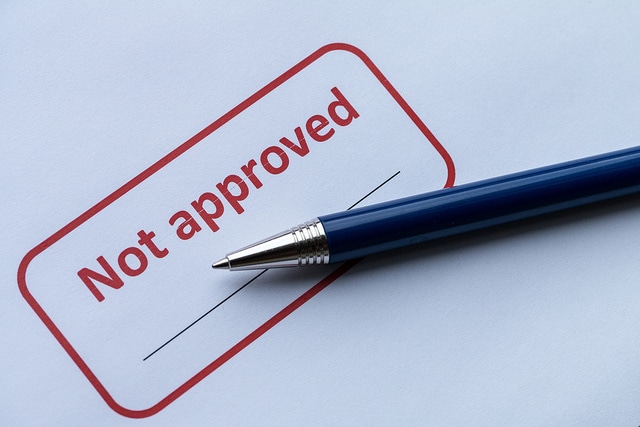It’s going to happen someday. You’re going to open your inbox, and it’s not going to be the headline that makes your eyes leap to that one email.
Your blood pressure’s going to rise, and it’s going to seem like Chrome slows down in opening that email that’s going to change your life.
You don’t even read the whole email. You just skim to capture the tone and find the dooming line that ultimately says, “Thanks but no thanks.”
Before you hit delete, write off the publication as not knowing good work when they see it, drown your sorrows in a gallon of ice cream, and swear you’ll never write again, wait.

photo credit: Daniel*1977 via photopin cc
1. Thank them.
If appropriate, thank the publication for taking the time to review your piece.
Sometimes rejections come from publications where you’ve got a relationship. Thanking them—as opposed to arguing—will open the door for a continued relationship. It might even result in more feedback for you to utilize in number three.
Rather than replying to a form letter, give yourself an internal high five because that publication took the time to read your piece. Even if it’s rejected, you still deserve a “Kudos” because it means you’ve shipped. You gave it your best.
2. Realize rejection is part of writing.
No writer has ever had every piece accepted. The rejection you received is not a personal attack on you, your writing, or your style. Rejection letters simply mean the piece you submitted is not a good match for what the publication is looking for. You may have a stellar piece that would be a perfect match at another publication. Your job is to find the right publication for your piece or make your piece right for that publication.
3. Take a step back.
Did the letter include tips for improvement? If so, take those to heart. They’re not just included in there to make your life miserable and help you see how bad your piece is. They’re a goldmine of tips that could have you perfect that piece or draft a completely new one.
However, just because you make all of the changes suggested does not guarantee future publication but it could increase your chances.
4. Try again.
Rejection is not a conclusion. It’s part of the writing process. Don’t give up. Don’t stop writing.
How do you cope with rejection?
PRACTICE
Look over the last piece you had rejected and see where you can make improvements. Post the improved one in the comments and comment on a few others.
(If you haven’t had a piece rejected recently, submit something and post what you submitted here).
Katie Axelson is a writer, editor, and blogger who's seeking to live a story worth telling. You can find her blogging, tweeting, and facebook-ing.



Katie, it looks like the system was “rejecting” comments… glad it finally took your advice to heart and is now handling it! 🙂
Good post, rejection is one of those realities of life we all have to learn to handle with grace and dignity.
My latest experience with rejection had to do with “overqualification.” A prospective client loved my writing and was so impressed with my expertise that they hired someone else. But they were right—the project called for lesser experience. There were, of course, other factors involved. Still, it’s rejection, and it required getting over. Yet rejection gives us insights into ourselves, and the others involved in the decision, that acceptance never would.
That’s definitely a unique rejection.
You’re so right about rejection often (though not always) being about just not finding the right match. I’ve read hundreds of proposals, and I can tell you that sometimes even the proposals you love are the ones you have to take a pass on. If a publisher knows it can’t do a good job with a book, better (for everyone involved) to just let it go!
Well, then in away the book still isn’t a right match for that publisher–a match for the skill set rather than the content.
I handle it by self publishing. 😉
I kid, but to be honest, I don’t understand why anyone would want to be published traditionally any more. Sure there’s the prestige, but, you get only 10% of the money that the publisher makes (if it sells). If you publish yourself, you get 70% (if through Amazon) to 90%.
Call me foolish, but I’d rather have the bigger piece of the pie for my work, rather than the prestige. Prestige doesn’t pay my bills, or put food on my table.
I’ve been fortunate. My first and second feature pitches were accepted by the same mag (which folded in October, before either piece was published!). And my first guest post pitch was accepted. That’s a great feeling.
But, when I sent my ebook out to beta readers, one of them was painfully honest. Fortunately, I was prepared for it – I had asked for honesty.
My goal is to learn to be a better, more confident writer. That means accepting rejection for what it is – an opportunity to improve. Improvement may be needed in my headlines, my prose, or even my choice of market.
I can’t get rejected unless I hit the send button. But, rather than avoid that button, I hit it and enjoy the feeling of accomplishing something I would not have been willing to attempt a few short months ago. That feeling of accomplishment helps to offset the temporary sting of “No thanks.”
Thanks for a great post, Katie